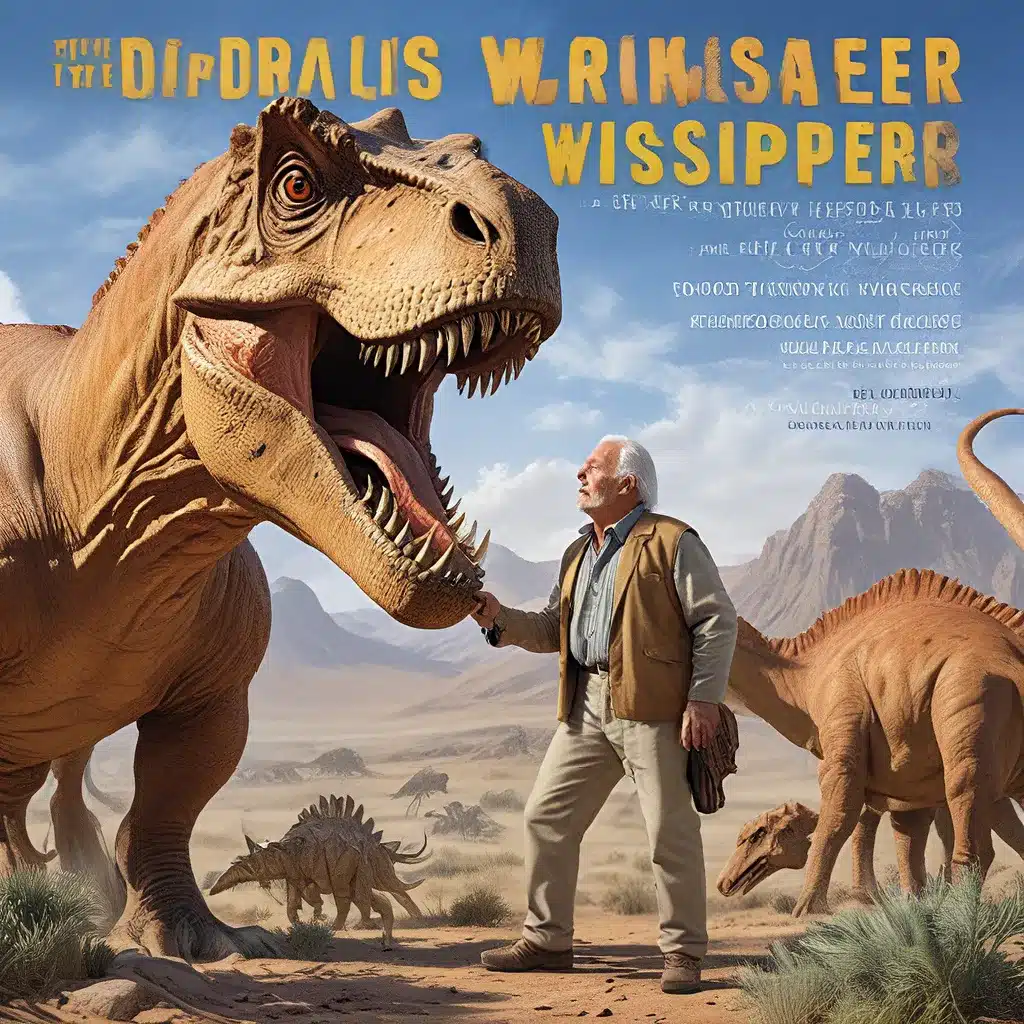
Unearthing the Ancient Secrets: Native American Encounters with Fossils
Native Americans, the First Americans, have long been recognized as keen observers of the natural world, with a deep understanding of the land and its secrets. However, their insights into the fossil record and the ancient creatures that once roamed the continent have often been overlooked or dismissed by the scientific establishment.
Recent research has revealed that Native American cultures had a rich oral tradition of stories and legends about the mysterious fossils they encountered, offering a unique perspective on the prehistoric inhabitants of their lands. From the Crow, Blackfeet, and Sioux of the Great Plains to the Navajo and Paiute of the Southwest, these ancient peoples were the first to experience the thrill of fossil discovery and the profound questions it raised about the past.
Uncovering the Lost Legends
The juxtaposition of Indian artifacts and dinosaur remains in museum displays has long intrigued scholars, leading them to wonder about the Native American understanding of these remarkable creatures from another age. However, until recently, the history of Native encounters with fossils was largely unexplored territory, with the assumption that this knowledge had been irretrievably lost.
Contrary to this belief, a growing body of evidence suggests that Native American fossil knowledge has been retained and passed down for centuries, often in the form of mythic narratives and traditional practices. Scholars and scientists have uncovered a wealth of oral traditions, archaeological findings, and museum collections that shed light on the deep connection these cultures had with the ancient remains that dotted their lands.
Piecing Together the Past: Native Paleontological Traditions
One of the most fascinating aspects of this rediscovered history is the sophisticated and rational approach many Native American cultures took in interpreting the fossil record. Far from a diffuse awareness of these remarkable artifacts, they engaged in careful observation, verification, and speculation about the identity, behavior, and fate of the extinct creatures they encountered.
These traditions were often imbued with a sense of deep time, as Native observers envisioned a succession of different faunas that had once inhabited the land. Etiological stories were crafted to explain the mysterious presence of these fossilized remains, and some animals observed only in fossil form were even identified as ancestors or relatives of living species.
Bridging the Divide: Native Knowledge and the Development of Paleontology
The intricate understanding of the fossil record held by Native Americans did not go unnoticed by the early pioneers of paleontological science. Figures such as Georges Cuvier, Alexander von Humboldt, Benjamin Franklin, and Thomas Jefferson were all avid investigators of indigenous American fossil lore, recognizing the value of these alternative perspectives on Earth’s history.
However, the connection between Native knowledge and the development of paleontology was eventually severed, as the discipline became more formalized and institutionalized. Prominent figures like George Gaylord Simpson effectively dismissed the significance of Native American fossil discoveries, relegating them to the realm of casual finds without scientific merit.
The Clash of Worldviews: Paleontology and Native Traditions
The tensions between traditional Native American beliefs and the practices of modern paleontology are rooted in fundamental differences in worldview and approaches to understanding the natural world. For many Native cultures, the earth and its contents – including fossils – are sacred, vital entities that should be respected and left undisturbed.
This holistic perspective stands in contrast to the Euro-American approach, which often prioritizes the pursuit of scientific knowledge over cultural sensitivities. Paleontologists have frequently dismissed Native American concerns about fossil excavation as superstition or ignorance, while Native communities have expressed deep distrust of paleontological activities on their ancestral lands.
Reconciling the Past: Towards a Shared Understanding
As our understanding of Earth’s history and the evolution of life continues to evolve, there is a growing recognition of the value in bridging the gap between traditional Native knowledge and modern scientific inquiry. Paleontologists are beginning to acknowledge the insights and observations of indigenous peoples, while Native communities are asserting their rights to protect and steward the fossil resources on their lands.
This dialogue holds the promise of a deeper, more holistic understanding of the ancient world and the extraordinary creatures that once roamed the Earth. By embracing the perspectives of both the scientific community and Native cultures, we can uncover a richer, more nuanced narrative of our shared past – one that acknowledges the significant contributions of the First Americans to the field of paleontology.


